Are african violets good for air quality? African violets are popular because they’re easy to propagate and care for, but do they actually help improve the air we breathe? In this article, we’ll explore the benefits of growing African Violets including their potential impact on our indoor air quality. We’ll also talk about other indoor plants that can have an even greater effect. We’ll wrap up with some tips and tricks you can use to ensure your home is getting the best possible benefit from your houseplants! So if you’re wondering “are african violets good for air quality?”, read on!
Table Of Contents:
- Benefits of Growing African Violets
- Other Indoor Plants That Improve Air Quality
- Conclusion
- FAQs in Relation to Are African Violets Good for Air Quality?
- Conclusion
Benefits of Growing African Violets
African Violets are a popular houseplant that is easy to care for and can bring life to any home. They are also beneficial in other ways, such as improving air quality.
Filtering Pollutants
African violets act as natural filters by absorbing pollutants from the air, including formaldehyde, benzene, and trichloroethylene. These chemicals can be found in everyday items like carpets, furniture upholstery, paint strippers and more. African violets help reduce these toxins from entering our lungs by filtering them out of the air we breathe.
Releasing Oxygen
In addition to purifying the air around us with their pollutant-filtering capabilities, African violets also release oxygen into the atmosphere. This helps create a healthier environment for everyone in your home.
Low Maintenance Care

The best part about growing African Violets is that they require very little maintenance compared to other houseplants! All you need is indirect sunlight (such as near a window), regular watering (about once every week or two) and occasional fertilizer applications (once every month). With just these simple steps your plant will thrive!
Versatile Planting Options
African Violets come in many different varieties, so you can choose one that fits your style perfectly. From mini versions for smaller spaces to larger ones with bolder colors, there is something for everyone. If you don’t have much counter space available, some varieties even come with special hanging baskets included, allowing you to hang them on walls.
African violets have many benefits, from their beautiful blooms to the improved air quality they bring. Other indoor plants that also help improve air quality will be discussed in the next section.
Other Indoor Plants That Improve Air Quality
Indoor plants can be a great addition to any home, providing both aesthetic and practical benefits. Not only do they look beautiful, but many of them also help improve air quality by filtering out pollutants like formaldehyde and benzene. Here are some of the best indoor plants for improving air quality:
- Spider Plant – The spider plant is an easy-to-care-for houseplant that helps filter out toxins like xylene, formaldehyde, carbon monoxide, and more from the air. It’s a fast grower with long leaves that hang down in graceful arcs making it an attractive addition to any room.
- Peace Lily – This flowering plant has large white blooms that make it stand out among other houseplants while its dark green foliage adds contrast to lighter colors in your decorating scheme. In addition to looking good, peace lilies help remove ammonia from the air as well as benzene and trichloroethylene which are found in paint fumes and dry cleaning chemicals respectively.
.png)
- Bamboo Palm – The bamboo palm is another popular choice for purifying indoor air due to its ability to absorb harmful toxins such as formaldehyde and xylene from carpets or furniture fabrics made with synthetic materials like polyester or nylon fibers. Its lush fronds add height and texture to any space while helping reduce airborne allergens too!
- Aloe Vera – Aloe vera not only looks good but it also helps cleanse the air of volatile organic compounds (VOCs) including benzene which is found in plastics, detergents, glue products etc., making it ideal for those who suffer from allergies or asthma symptoms caused by VOCs present indoors.
- English Ivy is a classic houseplant that has been used since ancient times due to its ability to filter airborne particles such as mold spores, which can cause respiratory problems if left unchecked over time. Additionally, ivy makes a nice trailing vine along shelves or mantles, adding color without taking up much space.
There are many plants that can help improve air quality indoors. African violets are just one of the many options available to gardeners looking for a plant to keep their indoor air clean and fresh.
Conclusion
Not only do African Violets add beauty to your space, but they also improve air quality by removing pollutants from the air through their leaves. This helps keep your home free of dust mites, mold spores, pet dander and other allergens that can cause respiratory problems in some people. In addition to this benefit, these plants also produce oxygen which helps create a healthier environment overall.
Other indoor plants that help improve air quality include spider plants (Chlorophytum comosum), peace lilies (Spathiphyllum wallisii) and English ivy (Hedera helix). These all have similar benefits to African violets in terms of improving air quality by absorbing pollutants like formaldehyde found in carpets and furniture fabrics while releasing oxygen into the atmosphere at night time when photosynthesis stops in no-light conditions.
FAQs in Relation to Are African Violets Good for Air Quality?
Are African Violets a good choice for the bedroom?
Yes, African Violets are a great choice for bedrooms. They thrive in indirect sunlight and need to be kept moist, making them an ideal plant for indoor spaces. With proper care and attention, they can bloom all year round with their bright purple flowers adding a touch of color to any room. Additionally, they require minimal maintenance and do not take up much space, so you don’t have to worry about overcrowding your bedroom.
Are African violets good house plants?
Yes, African violets are good house plants. They thrive in bright indirect light and prefer temperatures between 65-75°F. With the right care, they can bloom year round. African violets need to be watered from the bottom up and fertilized every two weeks for optimal growth. When properly cared for, these plants can live for many years and bring a lot of beauty to any home or office space.

What are the best indoor plants for air quality?
Indoor plants are a great way to improve air quality in your home. Some of the best indoor plants for air quality include peace lilies, spider plants, aloe vera, English ivy, and African violets. Peace lilies help remove toxins such as formaldehyde from the air while also adding humidity to dry environments. Spider plants are easy to care for and can absorb carbon dioxide and release oxygen into the environment. Aloe vera helps filter out benzene and formaldehyde from the air while providing an attractive addition to any room. English ivy is known for its ability to reduce airborne mold spores in the home by up to 94%. Lastly, African violets have been found effective at removing pollutants like xylene and trichloroethylene from indoor spaces while being relatively low maintenance houseplants that thrive with bright indirect light.
Are African violets toxic to humans?
No, African violets are not toxic to humans. They are generally considered safe for people and pets alike. The leaves of the plant contain saponins which can cause skin irritation in some individuals, but this is usually mild and temporary. Ingestion of any part of the plant is not recommended as it may cause stomach upset or other adverse reactions.
Conclusion
The answer is yes! African violets are a great choice when it comes to improving the air quality in your home. Not only do they look beautiful and add color to any room, but they also help purify the air by removing toxins from the environment. Additionally, other indoor plants such as spider plants and peace lilies can be used to improve air quality in your home. With these tips in mind, you can create a healthier living space with just a few simple additions of houseplants!
Growing, propagating and caring for these delicate flowers is easy with just a little bit of knowledge about their needs. With proper care and attention, African violets can make an attractive addition that helps keep your indoor environment healthy!

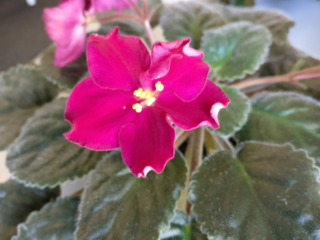
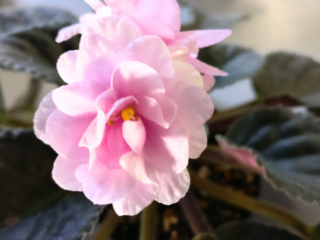
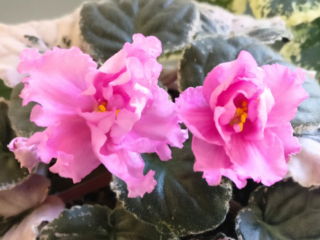
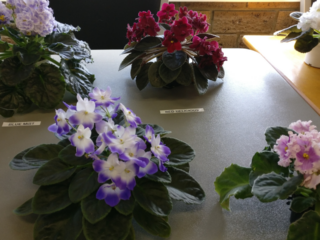
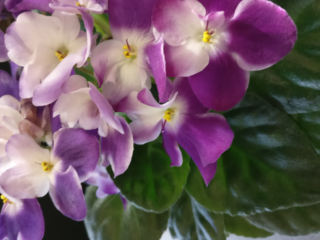
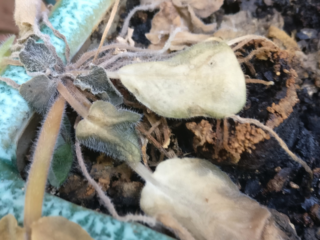
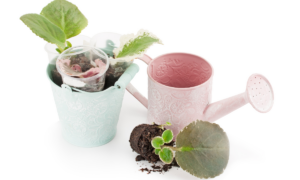
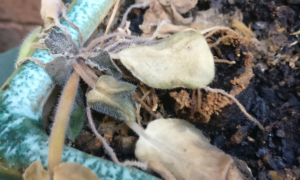
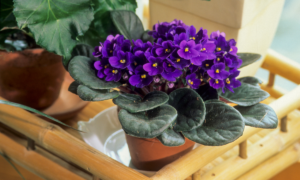
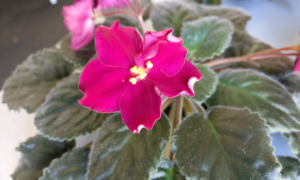

2 Comments
I had no idea that African violets were so good for the home. I have about 80 plants and more babies on the way. So I guess my house is very healthy to live in. I just love them. Most of them are under a year old some I brought and some from leaves I brought. Some are about to flower. It’s so exciting to find buds. Then wait to see what they look like. As I picked them from photos.
Martina, wow! 80 plants is epic! Send us some photos by email? We’d LOVE to feature one of your plants in our Plant of the Week gallery and share your collection on our Facebook page. Please do keep us updated!